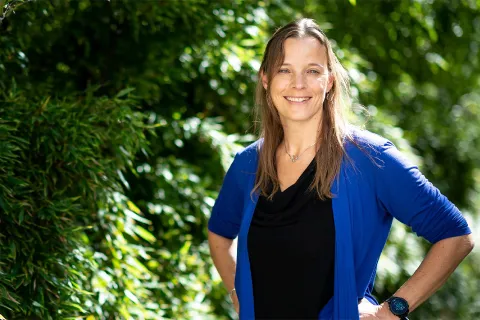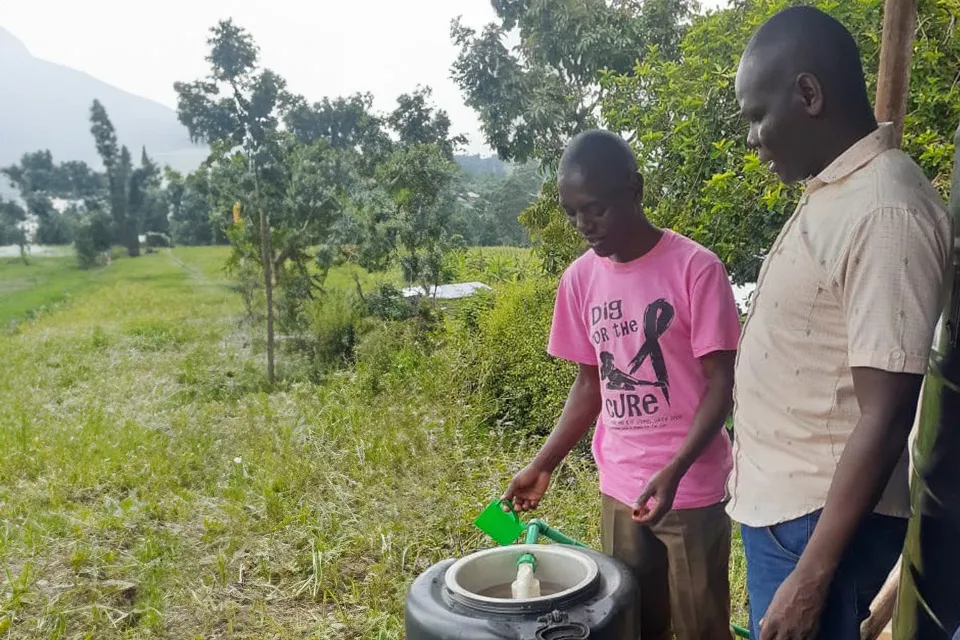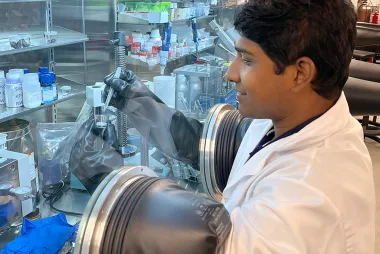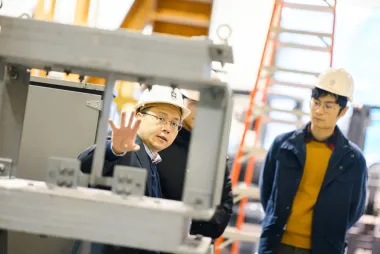Transforming access to clean water through decentralized treatment solutions

United Nations Sustainable Development Goal 6 outlines the need for universal and equitable access to safe and affordable drinking water, sanitation and hygiene for all by 2030. However, drinking water sources worldwide are heavily contaminated and wastewater is often untreated before discharge into the environment, contributing to the spread of disease. Dr. Sara Beck, an assistant professor at UBC Civil Engineering, is advancing research aimed at removing microbial and chemical contaminants from water and wastewater in decentralized settings.
Beck is receiving funding from the Canada Foundation for Innovation (CFI) and the British Columbia Knowledge Development Fund (BCKDF) to advance her group’s work on decentralized water and sanitation systems.
Decentralized water treatment systems, which treat water at the point of collection or point of use, differ significantly from centralized ones in their scale, operation, maintenance and cost. In decentralized settings, there is a lack of municipal engineering infrastructure, necessitating alternative approaches tailored to local contexts where conventional approaches are not feasible. Beck emphasizes the importance of advocating for water treatment systems at smaller scales, ensuring that communities have access to clean water for both drinking and irrigation.
“The pressing question that prompts this research is how do you achieve the same efficacy of water treatment at smaller scales with limited resources,” said Beck.
The foundation of Beck’s work lies in the pressing need to address water quality issues in communities lacking centralized treatment infrastructure. Her motivation stems from personal experiences, notably through involvement with Engineers Without Borders-USA working in rural communities in Uganda, El Salvador and Nicaragua, where they encountered the stark reality of communities relying on untreated water sources.

Implementing decentralized systems comes with its challenges. Beck highlights the need for sustainable and cost-effective technologies that can reliably remove contaminants. Moreover, operational and maintenance considerations are crucial to ensure the longevity and effectiveness of these systems.
Securing funding from prestigious institutions like the CFI and BCKDF is instrumental in advancing this research. Central to her research is the acquisition of equipment for a microbiology lab, which will enable Beck and her research team to identify bacterial, viral and microplastic contaminants of concern in surface water, groundwater, and cisterns, and also to enable the investigation of simplified filtration and disinfection methods for removing, inactivating, or degrading the contaminants.
The impact of this research extends beyond the laboratory, with the potential to improve water quality in regions with limited access to centralized treatment facilities, such as smaller rural communities in East Africa. Implementing decentralized treatment systems in households or community-scale systems, such as schools, could safeguard public health and enhance overall well-being.
Beck envisions scalability and sustainability as essential aspects of her research. She is exploring collaborations with other researchers to expand her solutions beyond her current focus areas, including regions in British Columbia, demonstrating the feasibility of widespread implementation.



